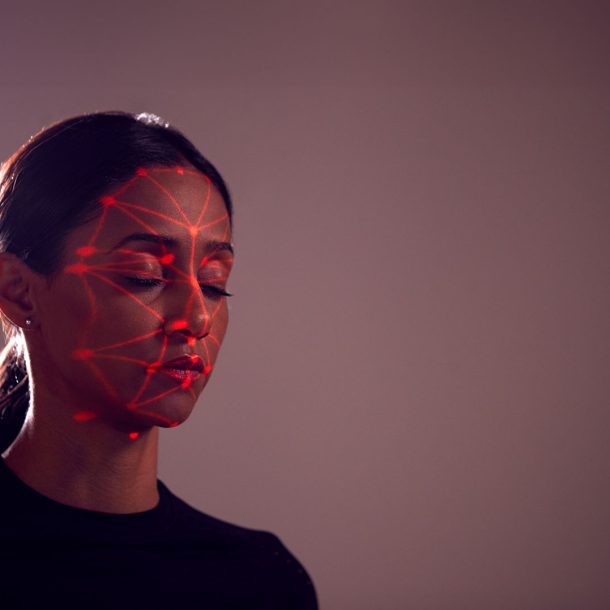
NFC identity verification is a process of verifying the identity of a person using a NFC-enabled ID document, such as a passport, an ID card, or a driver’s license. NFC stands for Near Field Communication, a technology that allows wireless data transfer between two devices nearby. NFC verification uses the NFC capability of a smartphone to read the data stored in the chip of the ID document and compare it with the data on the document itself. In case of EnQualify’s NFC feature, users can complete their onboarding and transactions after only completing their ID verification in 2.5 seconds. Users need NFC-enabled device and ID document; also, it is possible to vibrate the location of NFC antenna to seamlessly complete the verification process.
But first, let’s look at NFC technology itself and how the system works in general.
Two discrete elements comprise an NFC-enabled communication system: a tag and a reader chip.
The data is read by the NFC reader device, which then triggers a specific response. It constitutes the operative component of the system. The NFC tag functions as a passive element. It is supplied with commands and power by the reader chip. The passive tag would transmit the programmed response in response to the commands received from the chip.
Although NFC devices are frequently linked to credit and debit cards, they are also present in specific contemporary forms of identification. This includes several passports, commonly referred to as e-passports when they contain an NFC device and identification certificates from specific EU member states.
Using NFC Identity verification which is integrated into smartphones, this further form etrieves data from the chip and compares it with the information from the Machine Readable Zone (MRZ) data on the picture ID page. The data encrypted on the chip is authenticated by a combination of Public Key Infrastructure (PKI) and a specifically created ID validation application, rendering it impenetrable to even the most skilled cyber criminals.
NFC verification is a critical tool for enhancing security, compliance, and customer experience in various industries, such as:
NFC verification can help banks prevent account takeover fraud, synthetic identity fraud, and money laundering by verifying the identity of their customers quickly and securely. NFC verification also can help lending companies approve loans with confidence by verifying the identity and creditworthiness of their borrowers in real time.
Currently, this is one of the most popular fields where NFC chips are employed for the customer side. Because each day people are getting used to carrying only their smartphones to make payments at shops, send money transfers, and more.
NFC ID verification can help fintech companies comply with anti-money laundering (AML) and know-your-customer (KYC) regulations while offering a seamless and convenient onboarding process for their customers.
By confirming a patient’s identification before allowing them access to their medical records or services, NFC verification helps healthcare providers safeguard their patients’ sensitive data from unwanted access.
By providing the public with a quick and simple method to access a range of online services, including e-healthcare, e-voting, and e-taxation, NFC ID verification may aid in the provision of e-government services.
NFC technology is used by most transportation modes, including buses, metro trains, and subways, for secure entry and payment.
NFC tags embedded in interactive billboards, posters, and signage allow people to buy concert tickets and acquire coupons.
NFC may assist in locating a specific item and providing real-time data, including manufacturing lot and other kinds of documents. It makes the whole inventory process considerably leaner and streamlines logistics and transportation regions.
NFC technology is widely compatible with smartphones, which most people have nowadays. This makes it easy for various sectors to create NFC tags for credit cards, IDs, and other purposes that people can access from their devices.
NFC is a wireless technology that works only within a short range (< 10 cm). This means that the NFC chip with the card information has to be close to the reader for any transaction/identification to happen. This makes it very hard for criminals to steal someone’s details. Moreover, smartphones usually have multiple ways of authentication, which makes them safer than physical cards. In case of NFC identity verification, it works as the highest security method in the market.
NFC transactions and identifications are fast and smooth. NFC ID verification technology is also simple to implement, which reduces the time needed for setting up.
One of the main benefits of NFC is that it does not need any Bluetooth or internet connection. This allows people to use NFC services without having to connect their devices online. This also makes it suitable for small businesses to use NFC devices for their operations.
NFC technology can also enhance customer experience. For instance, customers can scan an NFC tag for a specific product and get various information, such as what materials or ingredients are used. They can also get offers, points, or other rewards, through an engaging interactive experience, using text, images, music, or videos. This is easier than using QR codes, which require the use of the camera.
NFC identity verification is a future-proof solution that leverages the latest technology to provide a high level of security, accuracy, and convenience for both businesses and customers. It is a cost-effective and user-friendly way to verify identities in a digital world.
Hence, NFC biometric verification offers a method for identity verification that encompasses all of the aforementioned aspects. Because retail banks, insurance businesses, brokerage companies, life assurance and pension organizations, stock exchanges, and financial technology companies encounter a wide variety of dangers daily, this technique is especially vital for the financial services sector. To prevent these fradualent activites while ensuring customers of these sectors have a smooth digital experience, EnQualify NFC verification feature with its NFC antenna detector simplifies the verification process by providing customers with a swift and accurate method to scan their ID cards.
With this technology, customers can directly capture identification data and biometric photos from the chip embedded in their ID cards with 99% accuracy rate. Whether utilizing an iOS or Android device, as long as it is equipped with NFC capabilities, customers can effortlessly leverage EnQualify’s verification capabilities.
Click for more information about NFC



Industries
Company
Resources
Copyrights © EnQualify | All rights reserved. Privacy Policy | Cookie Policy | Terms of Use | Security & Compliance